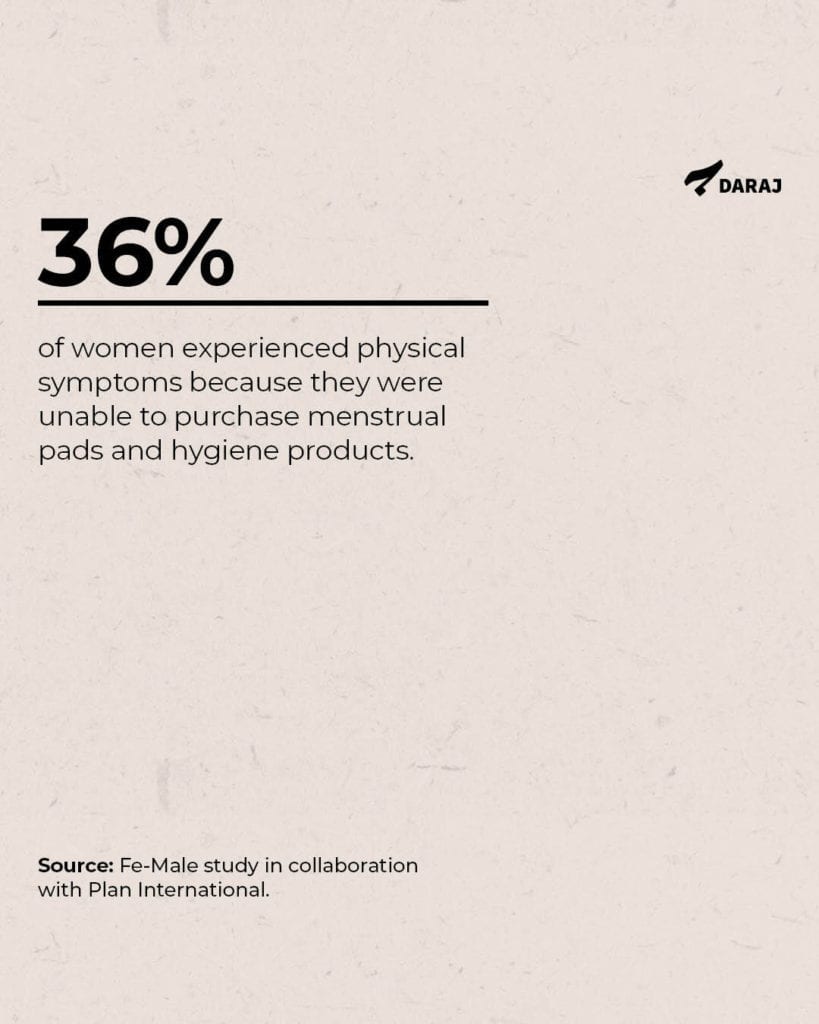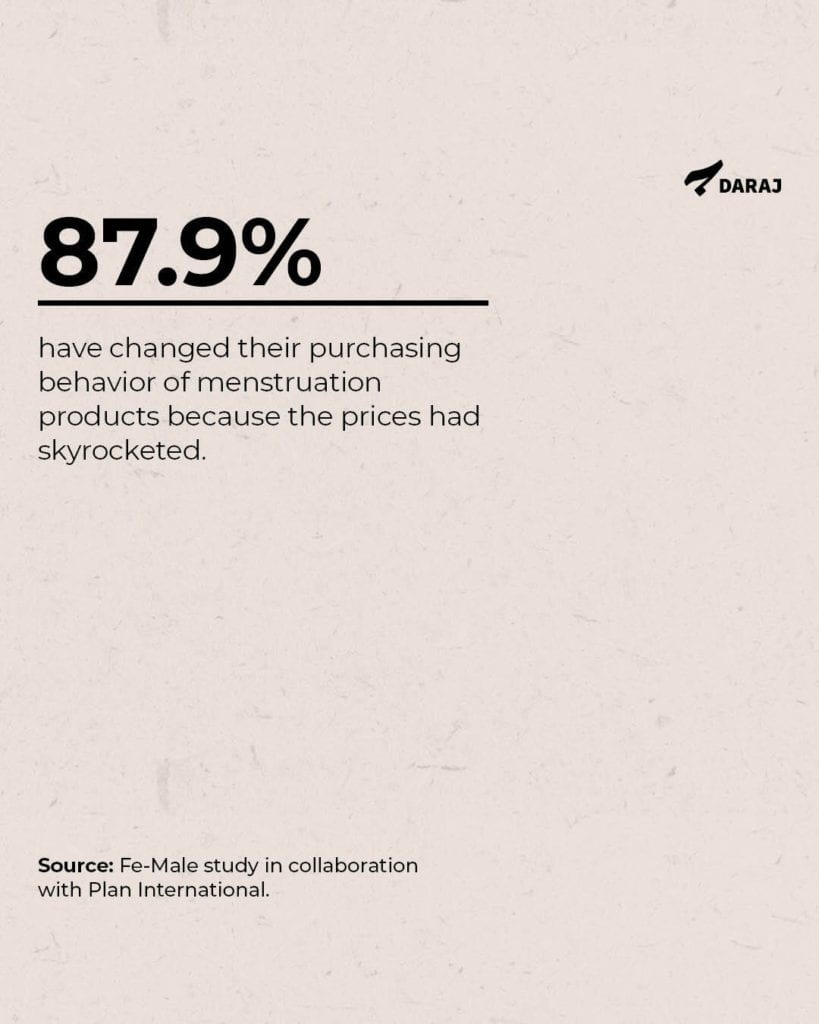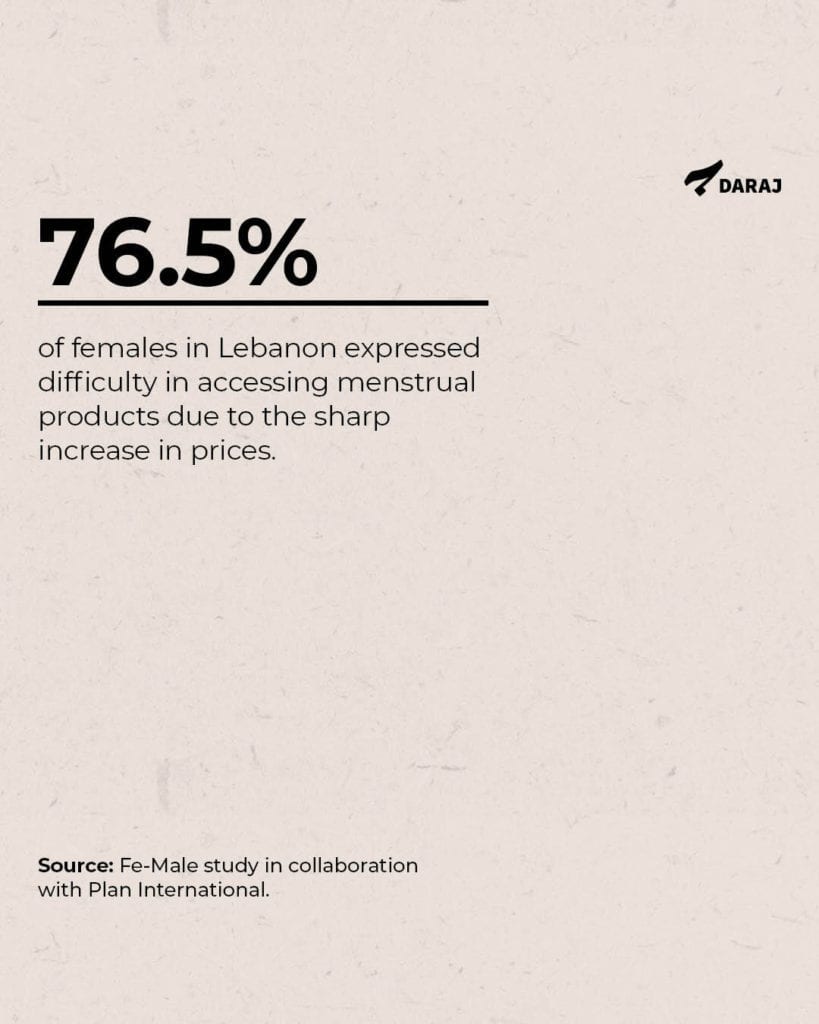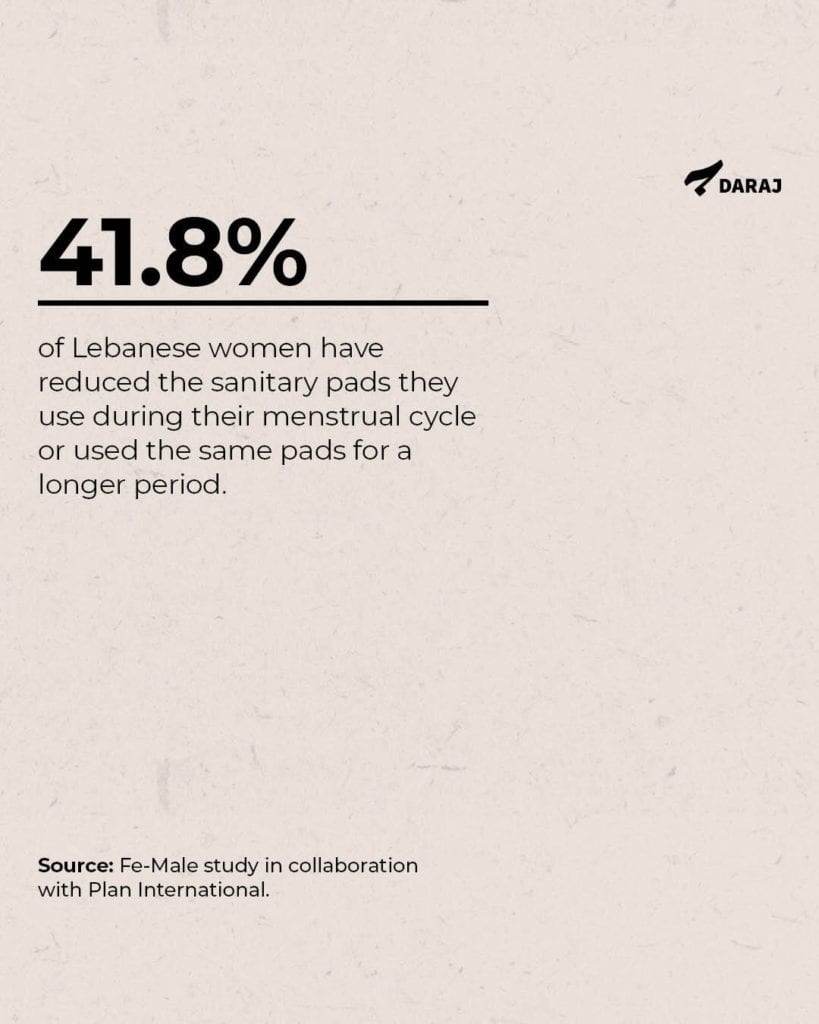“Sanitary pads have become expensive. I’m still able to secure a box per month, even though I used to use two packs before, but I’m sure that many women are totally unable to buy pads. Even the tissue paper that is used as an alternative has increased in price,” explains Nour, 26.
Nour is one of the 41.8% of Lebanese women who have had to reduce the number of sanitary pads they use during their menstrual cycle, (meaning they’d use a single pad for a longer period) according to the latest study conducted by Fe-Male and Plan International.
The study aims to determine the factors affecting how females are managing their menstrual cycle, and to understand the repercussions the economic crisis has had in terms of the availability of health products and the behaviors that followed.
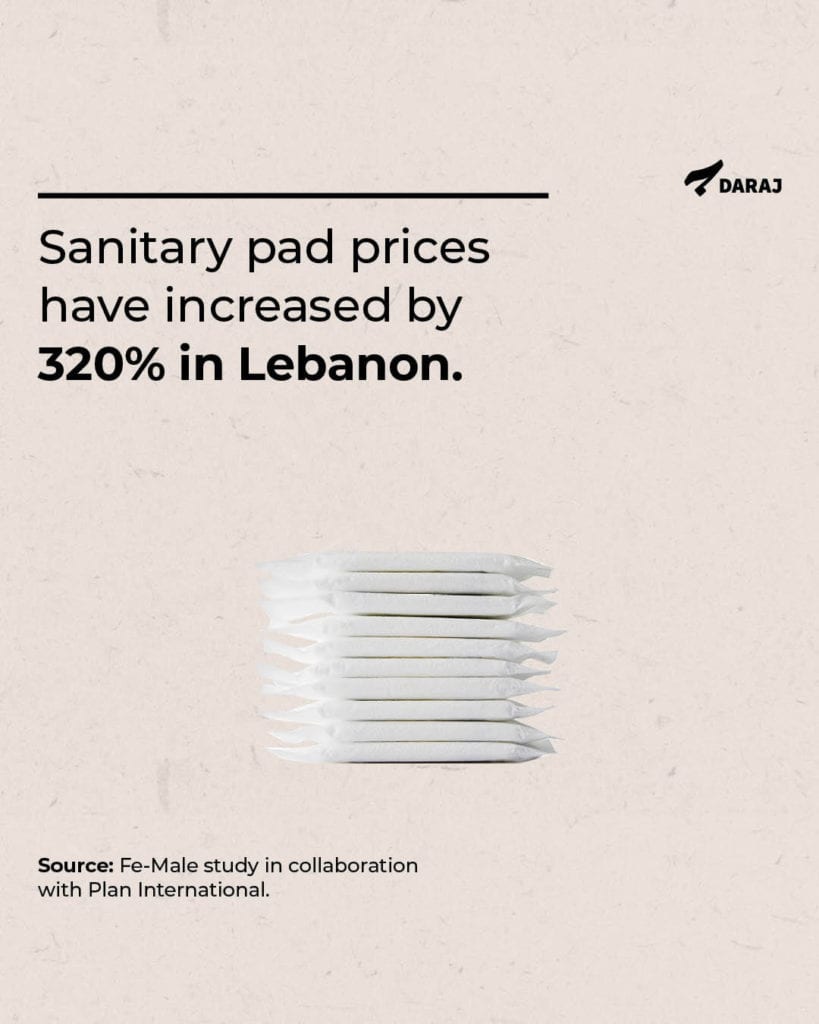
In light of the worsening economic situation and the accompanying rise in rates of poverty, Lebanon is now one of the countries suffering from “period poverty,” a term usually associated with developing countries where financial issues faced by low-income females affect their purchase of menstrual products.
The term includes not only the costs of menstrual items such as sanitary pads and tampons, but also related costs such as pain killers and underwear.
According to the study, 76.5% of women in Lebanon have expressed difficulty in accessing menstrual products due to the sharp increase in prices. In addition, 87.9% of them have altered their purchasing behavior because the prices increased significantly. 79% of Lebanese women have also noticed a change in consumption of menstrual products in their surroundings.
Insane Prices and Pieces of Cloth as Alternatives!
In conjunction with the crazy rise in commodity prices, the price of sanitary pads has had a 320% increase in Lebanon. The price of a standard sanitary pad pack ranges between 13,000 and 34,000 Lebanese pounds, compared to its previous price of 3000 pounds (excluding the “pink tax” on “pink” products for women, such as razors, deodorants, and others). This prompts women to reuse or wear pads for long periods, or even replace them with pieces of cloth or toilet paper, which could damage their health and has dire consequences on women’s bodies.
Several civil initiatives in Lebanon are seeking to bridge that gap created by economic inflation, including Fe-Male, who works to combat period poverty by distributing packages containing menstrual necessities to the women who need it.
That 66 Percent
Of the teenage girls in Lebanon who cannot afford to buy sanitary pads, more than half are Syrian refugees, according to Plan International. It should be noted that among the more than 300 commodities included in the subsidies basket launched by the Ministry of Economy, officials somehow did not find a place for sanitary pads or any female-related personal hygiene supplies, whose prices have increased fourfold since the beginning of the crisis.
No matter how marginal this issue may seem to many, it remains, despite all attempts to trivialize it, a fatal reflection of the patriarchy of decision-makers in Lebanon, and a testament to their insensitivity to the simplest rights of women, often marginalized in priority. This is in addition to the fact that the Banque du Liban has completely stopped covering some medication, including contraceptive pills.
“Women’s organizations were at the front lines in the covid crisis and others when the state showed a complete absence, but the escalation of the economic crisis has made it difficult for these organizations to bridge that gap,” Alia Awada, Executive Director of Fe-Male Partnership explains.


Forgotten Despite the Health Consequences…
No one seems to care about this aspect of women’s lives. Women’s physical health will be vulnerable as a result of the problems in obtaining menstrual products and their having to resort to several ways to confront these problems of access.
The results of the study have shown that 36% of women experienced physical symptoms because they were unable to purchase menstrual pads and hygiene products.
On the other hand, the effects of the economic situation on women’s ability to obtain menstrual products do not stop at the limits of women’s physical health, but went beyond to also affect their mental health, resulting in psychological stress, anxiety and tension. According to the study, 43% of the women in the study experienced some level of anxiety and stress as a result of not being able to get their period products.
Read Also:


